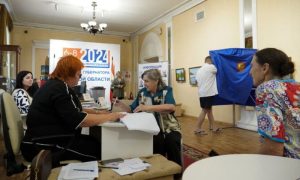NEW YORK CITY: In a recent development, the United Nations has expressed grave concerns regarding the escalating humanitarian crisis unfolding in the South Caucasus. The situation has forced over 100,600 ethnic-Armenian refugees, including 30,000 children, to seek refuge in Armenia from the Nagorno-Karabakh region of Azerbaijan over the past few weeks.
Alice Wairimu Nderitu, the UN’s special adviser on the prevention of genocide, has urged the international community to take immediate measures to safeguard the rights and safety of the affected population. She emphasizes the importance of facilitating their potential return to their homes, should they desire to do so.
The Nagorno-Karabakh region has been a long-standing point of contention between Armenia and Azerbaijan, with international recognition supporting its status as part of Azerbaijan. Nevertheless, ethnic Armenian separatists took control of the area in the mid-1990s. A six-week conflict in 2020 led to Azerbaijan regaining control of most of the surrounding territory.
Azerbaijan initiated what it described as an “anti-terrorist” campaign in Nagorno-Karabakh on September 19. Within two days, they successfully regained full control over the remaining parts of the region. Consequently, a significant number of ethnic Armenians, fearing potential reprisals, began crossing into Armenia.
This recent crisis has led to allegations of “ethnic cleansing” against Azerbaijan, an accusation strongly denied by its government. Nderitu echoes the UN’s call for the protection of the rights of all internally displaced individuals and those in refugee-like circumstances, stressing the need to ensure their right to return safely and with dignity.
Nderitu acknowledges the assurances given by Azerbaijani authorities regarding the protection of the ethnic-Armenian population and their rights. She also welcomes the initial access granted to UN representatives for assessing the humanitarian situation in the region. However, she emphasizes the importance of continuing these positive steps and allowing full humanitarian access.
She encourages the Azerbaijani government to develop a comprehensive plan, encompassing measures to ensure the safe return of those who have fled, and to uphold the rights and protections of minorities, as mandated by international human rights law.
Furthermore, Nderitu highlights the importance of thoroughly investigating allegations of violations committed during the conflict, including reports of civilian casualties, and the necessity for full accountability following the standards of international human rights and humanitarian laws. She also calls for enhanced dialogue to prevent further military escalation or violence in the South Caucasus.
Nderitu emphasizes the need for concrete action to ensure lasting peace in the region and address and overcome the deep-seated scars, distrust, and divisions that exist between communities.
























